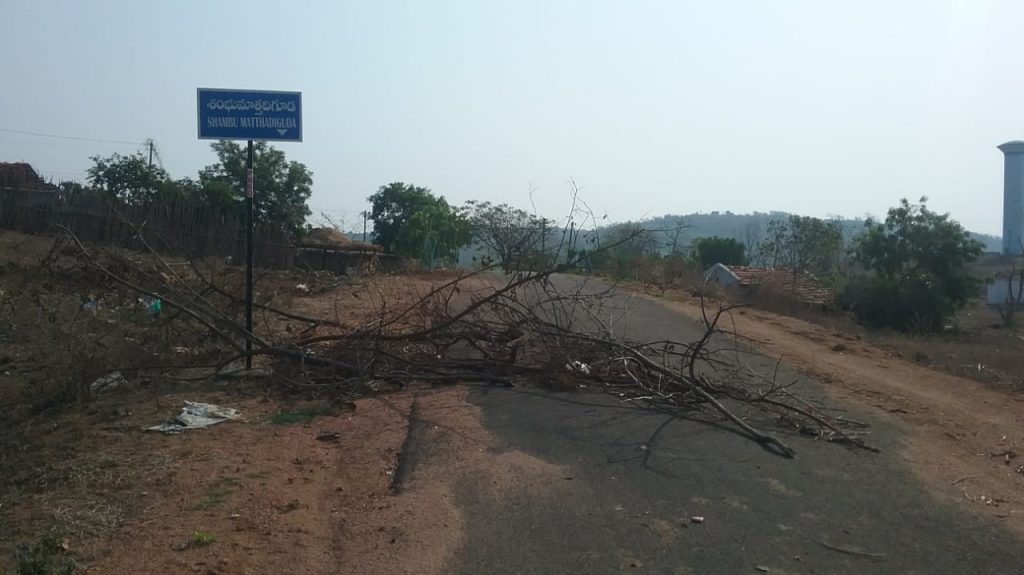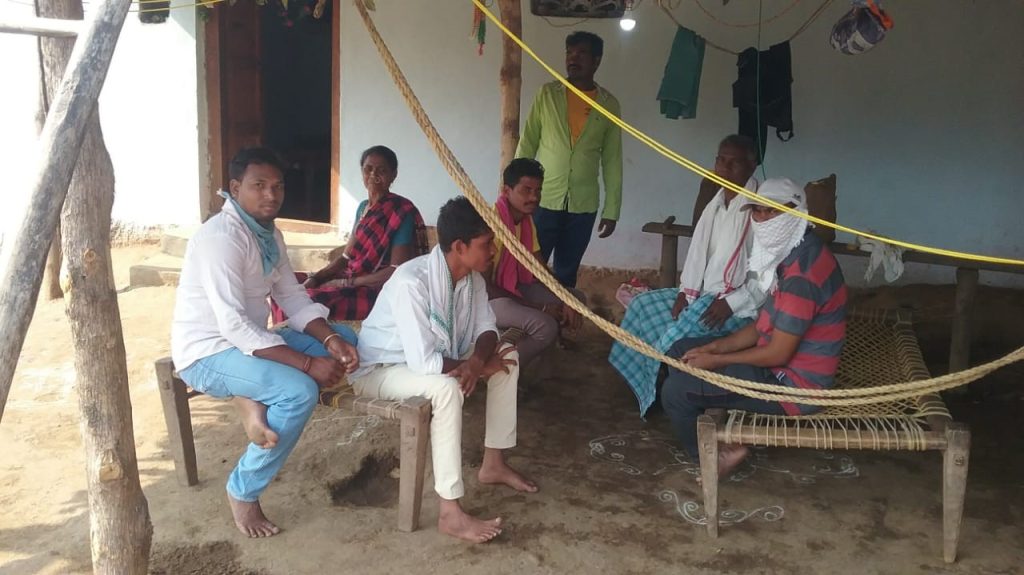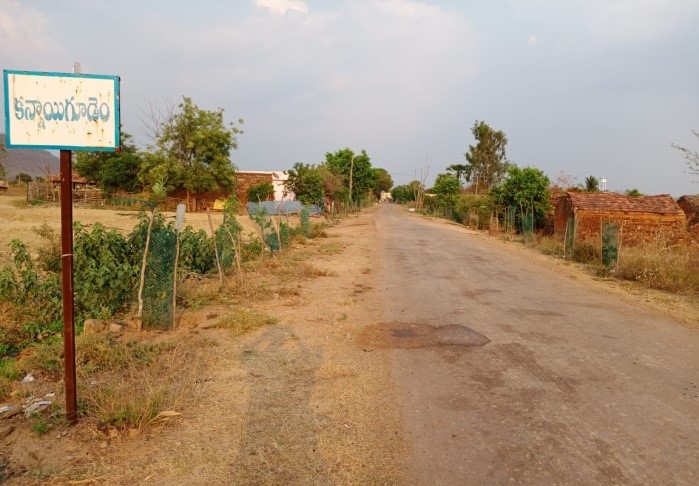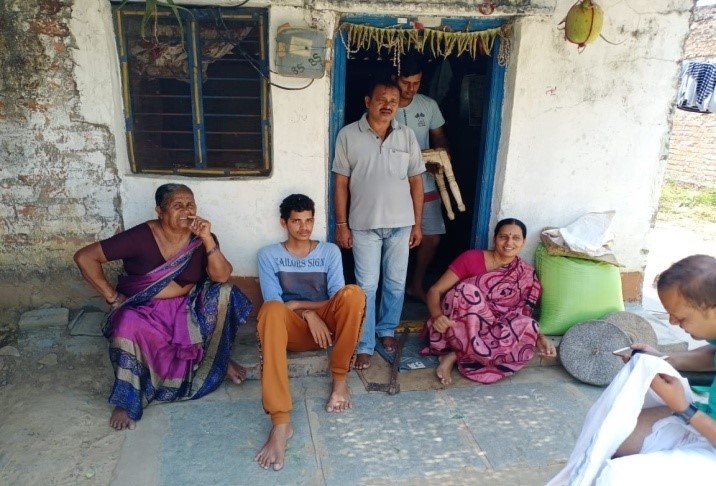Coping with Covid-19: A Reality Check on the Corona Lockdown in Scheduled Areas of Telangana
Adilabad


Following the decision taken by the community leaders and local elected representatives, entry of outsiders or strangers is barred into their villages. Even hawkers are not allowed into their villages – particularly those belonging to the minority community. Own motorbikes have become the only mode of transport due to the lockdown. They go to the nearest towns such as Utnoor to buy essential groceries. One bike rider typically buys essential supplies for a couple of families of their relatives or neighbours. Even double-riding on a motorbike is not allowed.
Majority of households have already started cutting down their consumption of basic groceries in the face of the uncertainty; and some are already buying their essential supplies on credit. Currently the tribals in general do not face food shortages or serious financial hardships since they have coped with the lockdown only for a couple of weeks. More importantly, the majority of tribal households have food grain reserves and some monetary savings from the recent kharif harvest which can sustain them for some more time. They, however, are likely to encounter a grim prospect if the lockdown is extended for a couple of weeks more.
Most non-farm wage workers – who work as construction labourers and porters in nearly urban locations such as Utnoor – are now staying in their villages following the lockdown. They started competing with the local farm labour for work. The commuter workers typically earn Rs 500-600 per day doing non-farm work in towns. But they are paid only some Rs 300 a day for their agricultural work in the village. The non-farm labourers are not only depriving the local workers of their opportunities but also depressing the wage rate; this has resulted in reduced availability of wage work. In this context schemes such as the Mahatma Gandhi National Rural Employment Guarantee Scheme assume added importance. But the MGNREGS is not under implementation in the villages visited by the researcher.
All eligible households have accessed the additional 12 kg of rice supplied free of cost by the government. However, the promised Rs 1,500 lockdown assistance per household has not been transferred to the accounts of the beneficiaries. The officials reassure the people by saying that the amount will be transferred shortly. The Aasara pensions, however, have been transferred according to the normal schedule. But some households reported that small amounts ranging from Rs 500 to Rs 800 have been transferred into their accounts.
For a sizeable proportion of the households of the villages it is the season to collect mahua flowers; the activity can engage them for about a month fetching each household a minimum of Rs 2,000. The flowers are sold to the GCC (Girijan Cooperative Corporation). The activity can support the colleting households for a couple of weeks. Only those farmers with assured irrigation, particularly borewells, are growing rabi crops such as paddy, maize, groundnut, wheat and vegetables.
Bhadradri Kothagudem
In Gowravaram and neighboring villages of Dummugudem mandal in Bhadradri Kothagudem district the scheduled tribes are observing the lockdown with earnestness. Initially villagers erected roadblocks to restrict the movements of outsiders. But following the death of a person due to the delay in providing medical help the local officials asked the people to remove the barricades to allow the movement of health and other essential services. People cover their faces and maintain social distancing whenever they travel to the nearest centres to buy essential groceries. Television is the main source of coronavirus related information. ANMs and ASHA workers regularly visit the families and educate them about Covid-19 and find out whether anyone is suffering from corona symptoms. Village Revenue Officers are also doing their bit by keeping tabs on the situation.
In Gowravaram and adjoining predominantly Koya habitations close to Chhattisgarh border there are hundreds of seasonal migrant workers who migrate to neighbouring mandals in summer to pick chillies. The availability of local wage work is meager. Owing to the lockdown the migrant workers are staying at home. There is a total ban on the movement of transport vehicles including autorikshaws. Resultantly, the two-wheeler has become the only means of transport. Some migrant workers who attempted to sneak out were intercepted by the police and sent back. The migrants are paid advances by the employers prior to the commencement of the picking season. The MGNREGS is not being implemented in these villages. One important factor to be taken into account here is that the MGNREGS Field Assistants (FAs) who were on strike have been suspended by the state government. The FAs are contract workers and the extension of their term is subject to the fulfillment of certain targets. The migrant workers reported that they are ready to work under the MGNREGS if work is provided.
The tribals are gradually adapting themselves to the new reality resulting from the corona lockdown. Stocking up groceries and PDS rice is the initial mode of adjusting to the situation for the majority. Currently the tribals are not facing serious food shortages but the grocery owners have already alerted the people about the possible shortages in the weeks to come. Nonetheless, taking advantage of the situation the local shopkeepers have already started overcharging people. All eligible households have claimed their PDS rice, including the additional 12 kg of free rice; but the Rs 1,500 lockdown dole from the State Government is yet to be transferred. Most eligible families though have received the relief payment of Rs 500 from the Central Government.
Mulugu
Similar circumstances prevail in adivasi (Koyas) and Lambada habitations of Mulugu district. The tribal belt of the district recorded at least two corona positive cases – both linked to the Tablighi Jamaat event organized in Nizamuddin area of Delhi. Most tribals here closely follow the Covid-19 related developments on television. There is a general feeling among the tribals that they have no option but to cooperate with the government in keeping the corona pandemic at bay. In these villages too road blocks came up in many villages in the wake of the lockdown announcement by the state government on 22 March, 2020. However, following the appeal by the Chief Minister most makeshift barricades have since been removed. But outsiders and strangers are either not allowed into the villages or their movements are tracked.
The availability of essential groceries in the towns such as Mulugu and Jangalapally is adequate for now. Since vegetables are grown locally there are no major disruptions in the supply chain. Agriculture labourers are arguably the worst-hit by the corona lockdown. Interactions with Koyas and Lambadas of Kannaigudem and Rangaraopally Thanda of Mulugu mandal reveal that farm labourers are unable to go to neighbouring villages on account of the lockdown restrictions on the inter-village movement of labour. Chilli picking is delayed in quite a few villages owing to labour shortages compelling farmer households to pick chillies themselves. But the farm workers have already started tightening their belts.


The rabi paddy crop standing on much larger areas is ready for harvest. Labour shortages may not pose a big challenge to farmers as most of them deploy harvesters to harvest paddy. But marketing of paddy may not be that easy given the government restrictions on vehicular movement and social distancing. However, the state government maintains that it has made arrangements to procure paddy through the existing market yards in a highly regulated manner and transfer the payments to the respective farmers’ accounts.
The local toddy-tappers are also adapting to the lockdown reality. The state government has banned toddy drinking centres to prevent the spread of coronavirus. Following the restrictions the toddy-tappers have now chosen the option of home delivery to serve their customers instead of serving the drink at toddy centres. When asked about how would they cope with the situation if the lockdown is extended for a couple of weeks more, an elderly Lambada man said: “we will store enough quantities of rice and pickle”.
The field researchers asked the stakeholders as to how would they cope with the situation if the lockdown is extended beyond 14 April. The bottomline of the responses from the vast majority is that the government has to intervene in a big way to rescue them.
